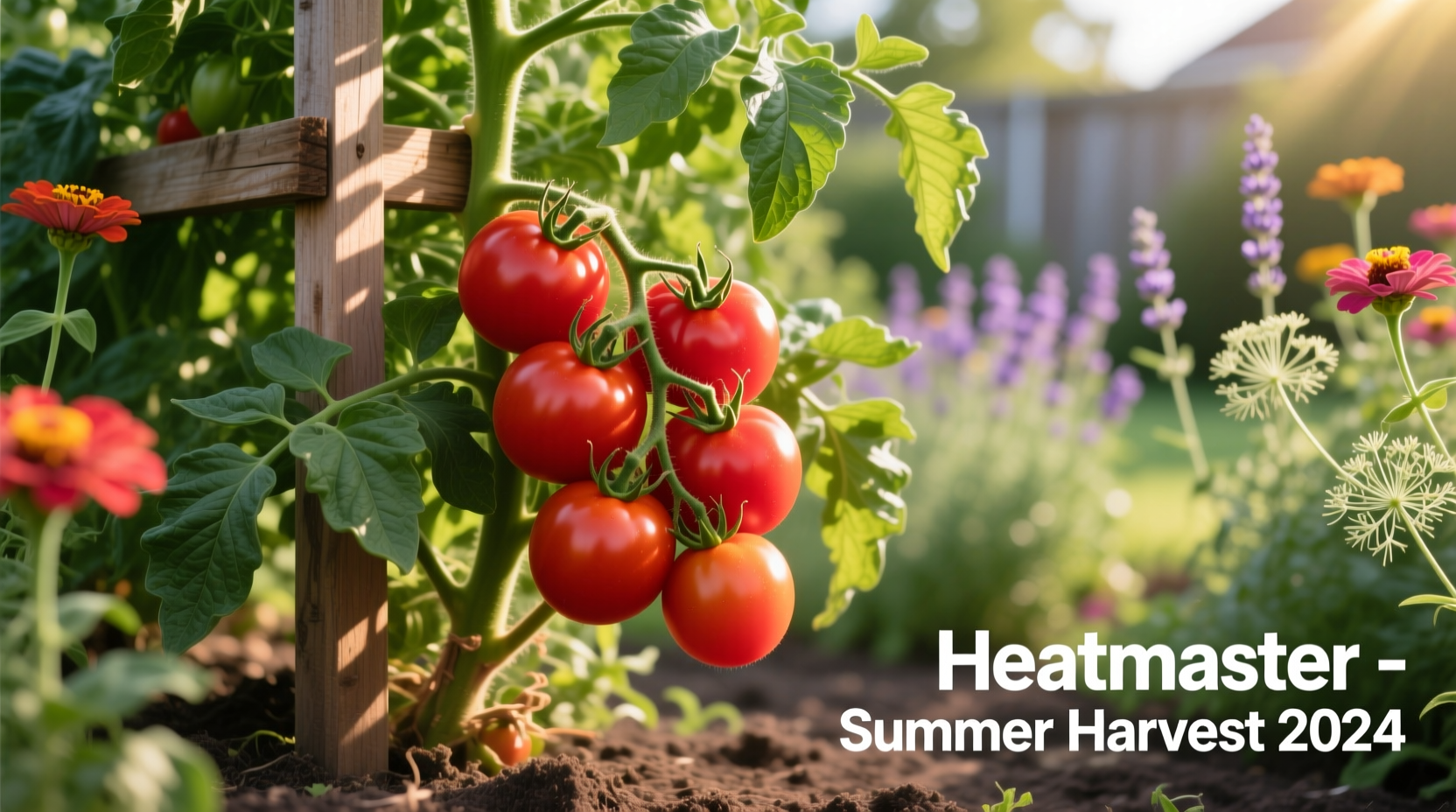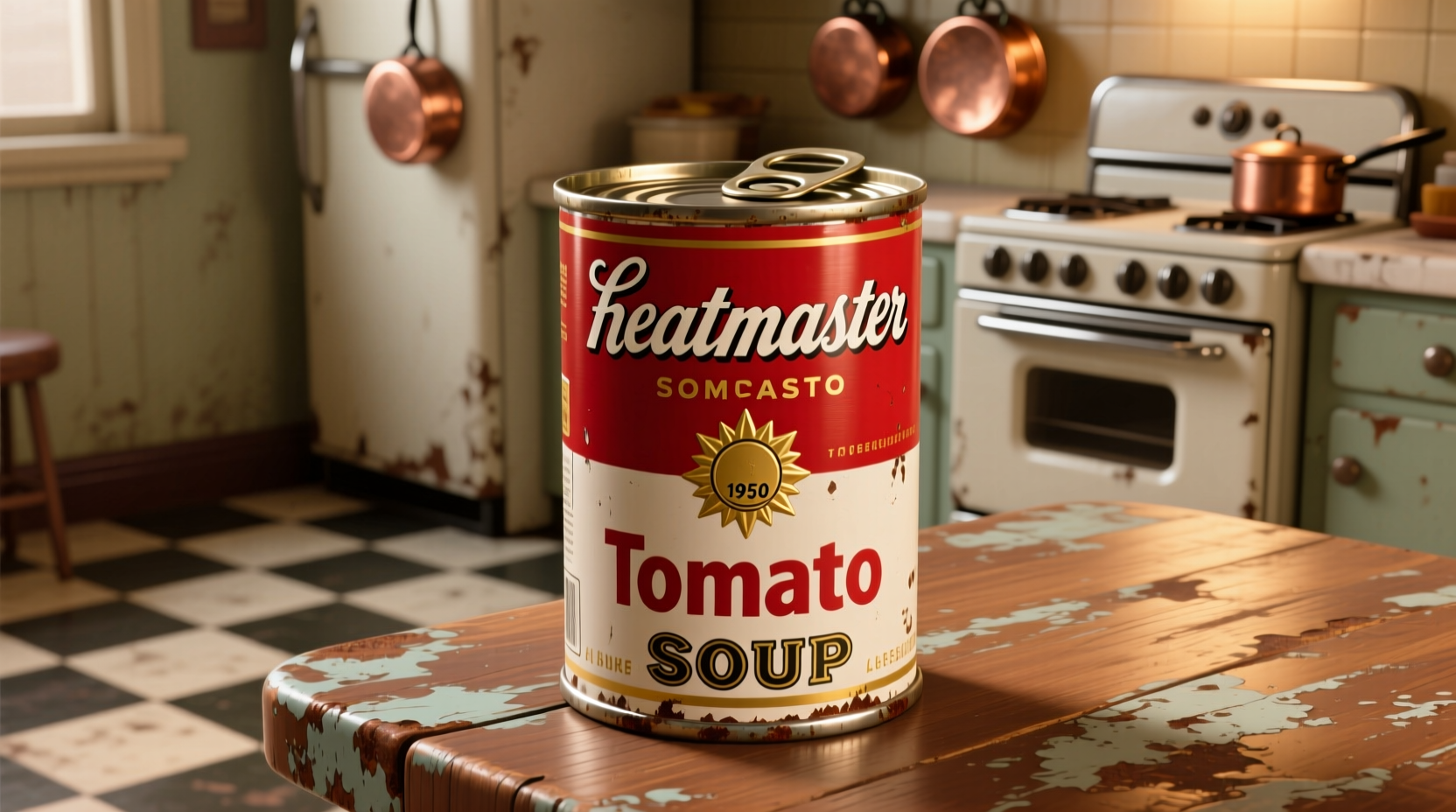Heatmaster tomatoes are a specially bred hybrid variety known for exceptional heat tolerance, producing reliable yields even in temperatures up to 95°F (35°C). This determinate variety offers medium to large (8-12 oz) fruits with classic tomato flavor, matures in 70-75 days, and shows resistance to common diseases including Fusarium wilt and Verticillium wilt.
For gardeners battling summer heat, finding tomato varieties that actually produce during scorching temperatures can feel like searching for water in a desert. Heatmaster tomatoes solve this exact problem, delivering consistent harvests when most varieties stop setting fruit. Developed specifically for warm climates, this workhorse variety has become essential for southern growers and anyone facing increasingly hot summers.
Why Heatmaster Outperforms Standard Varieties in Hot Conditions
Most tomato plants stop pollinating effectively when temperatures exceed 85°F (29°C), leading to blossom drop and zero fruit production. Heatmaster tomatoes break this pattern through specialized breeding that maintains pollen viability at higher temperatures. According to research from the University of Florida's Institute of Food and Agricultural Sciences, Heatmaster sets fruit reliably up to 95°F (35°C), significantly outperforming standard varieties like Better Boy or Early Girl in summer trials.
The secret lies in its genetic heritage. Bred from heat-adapted parent stock, Heatmaster maintains proper stomatal function during heat waves, allowing continued photosynthesis when other varieties shut down. This physiological advantage translates to real-world results: gardeners in USDA zones 7-11 consistently report harvests throughout peak summer months when traditional varieties fail.
| Variety | Max Temperature Tolerance | Fruit Size | Disease Resistance | Days to Maturity |
|---|---|---|---|---|
| Heatmaster | 95°F (35°C) | 8-12 oz | Fusarium, Verticillium | 70-75 |
| Summer Set | 90°F (32°C) | 6-8 oz | None | 65-70 |
| Phoenix | 92°F (33°C) | 4-6 oz | Fusarium | 75-80 |
| Florida 91 | 90°F (32°C) | 8-10 oz | Fusarium, Nematodes | 75 |
Step-by-Step Growing Guide for Maximum Heatmaster Production
Planting Timing: Start seeds indoors 6-8 weeks before your last expected frost. Transplant outdoors when soil temperature reaches at least 60°F (15°C) at a 6-inch depth. In hot climates, plant Heatmaster in early spring for summer harvest or late summer for fall production.
Soil Preparation: Heatmaster thrives in well-draining soil with pH between 6.2-6.8. Amend with 3-4 inches of compost and work into the top 12 inches of soil. Raised beds (8-12 inches high) improve drainage and keep roots cooler in extreme heat.
Water Management: Consistent moisture is critical during fruit set. Water deeply 1-1.5 inches twice weekly, increasing to three times during extreme heat. Mulch with 3-4 inches of straw to maintain soil moisture and temperature. Avoid overhead watering to prevent disease.
Fertilization Strategy: Apply balanced fertilizer (10-10-10) at planting, then switch to low-nitrogen, high-potassium formula when flowering begins. Excessive nitrogen promotes leafy growth at the expense of fruit production in hot conditions.

Common Challenges and Expert Solutions
Blossom Drop: Even Heatmaster can experience some blossom drop above 95°F. Combat this by providing afternoon shade with 30% shade cloth during extreme heat waves. Morning watering helps cool plants before peak temperatures hit.
Fruit Cracking: Rapid moisture changes after dry periods cause cracking. Maintain consistent soil moisture with drip irrigation and mulch. Harvest nearly ripe tomatoes before predicted heavy rains.
Pest Management: In hot climates, spider mites become problematic. Introduce beneficial insects like ladybugs and predatory mites. Spray undersides of leaves with water early in the morning to disrupt mite colonies.
Nutrient Deficiencies: High temperatures increase nutrient uptake demands. Watch for yellowing between leaf veins (magnesium deficiency) and address with Epsom salt solution (1 tablespoon per gallon of water).
Harvesting and Culinary Applications
Heatmaster tomatoes typically ripen 70-75 days after transplanting. Harvest when fruits show uniform color and slight give when gently squeezed. Unlike some heat-tolerant varieties that sacrifice flavor, Heatmaster delivers classic tomato taste perfect for:
- Fresh slicing for sandwiches and salads
- Classic tomato sauces and salsas
- Roasting for concentrated flavor
- Canning for year-round enjoyment
For best flavor development, allow tomatoes to fully ripen on the vine. Unlike many commercial varieties bred for shipping, Heatmaster offers excellent vine-ripened flavor without compromising firmness.
Why Heatmaster Fits Modern Gardening Needs
As climate patterns shift, heat-tolerant varieties like Heatmaster become increasingly valuable. According to USDA climate data, average summer temperatures have increased by 2°F (1.1°C) over the past 30 years across most tomato-growing regions. This trend makes Heatmaster's heat tolerance not just convenient, but essential for reliable production.
Gardeners in traditionally cooler zones now face summer temperatures that previously only affected southern regions. Heatmaster provides insurance against these changing conditions, delivering consistent harvests when unexpected heat waves would previously have destroyed crops.











 浙公网安备
33010002000092号
浙公网安备
33010002000092号 浙B2-20120091-4
浙B2-20120091-4